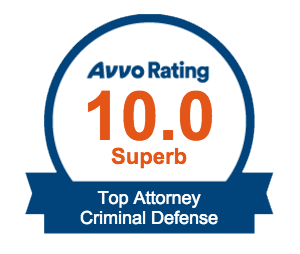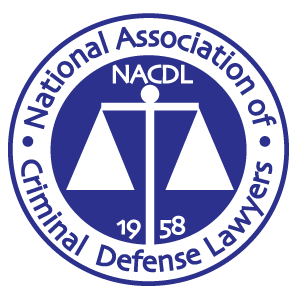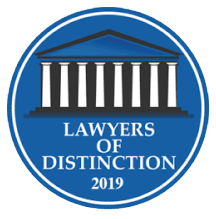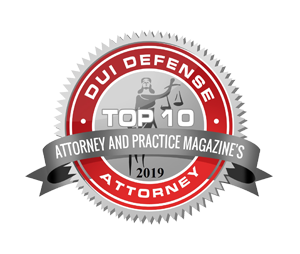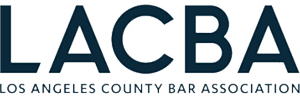Under the California Vehicle Code, a driver can face suspension of his or her driver’s license when apprehended driving with a Blood Alcohol Content beyond the recommended limit. Based on the Admin Per Se (APS ) program, a police officer can confiscate the driver’s license if found with various offenses. As a driver, you should seek legal intervention when your license gets suspended. We at the DUI Defense Attorney in Van Nuys will offer the assistance that you need to ensure that your case goes well.
Suspension Triggered byaA Criminal Case in a Court
Typically, the court can impose a DMV license suspension if one has a prior DUI conviction or a wet reckless conviction within ten years. The judge does not suspend but leaves it to the mandate of the DMV to impose it. During your plea bargain, the court can reduce your case to a reckless driving case that does not stand as a court-triggered license suspension case.
Bringing down your case to a reckless driving case makes you eligible for a restricted license after ninety days. To obtain eligibility for restricted driving license, you need to meet the following criteria:
- Adhere to the condition that will be set forth by the court
- Submit your proof of enrollment to a California DUI school
- Submit evidence that you have installed an Ignition Interlock Device on your vehicle
Note, California Senate Bill 1046(2018) allows the defendant to drive anywhere within California as long as he or she has installed the Ignition Interlock Device in the car.
If your DUI caused injuries to another person, the court has a mandate to give a three-year license suspension. However, you can convert it to a restricted license after the first year if you comply with the criteria provided above.
For those who failed to submit to a chemical or blood test, they risk a DMV license suspension for two years. This is a result of the one year of refusing the suspension and an additional year for the prior DUI conviction.
License Suspension Triggered by an Administrative Penalty
Most offenses are not considered as crimes unless one gets convicted of the offense by entering a plea or being found guilty of a court trial. With DUI offenses, the case is different since there are administrative consequences such as fees and license suspension, regardless of whether you are ultimately convicted with a DUI offense. This is according to the administrative per se violation (APS).
Once you have been arrested with a second DUI offense, you will get ten days to request a DMV hearing with the California Department of Motor Vehicle. Going through a DMV hearing is an uphill task, hence the need to choose a professional attorney to represent you. During this period, you will get a temporary suspension on your license. If one does not request a DMV hearing, the department will proceed into suspending the driver’s license.
Individuals who have been arrested with a BAC of 0.08 or higher will automatically get the administrative license suspension as per the Vehicle Code 13353.2. However, if you submit to a chemical test and the results show a BAC below 0.08%, you will not get a license suspension as per the APS violation. The only possibility of failing to get an administrative license suspension is by winning your hearing.
DMV Hearing Proceedings
A DMV hearing is informal compared with a criminal court case. The DMV hearing officer presides the case and makes the decision. It is easier for a DMV case to end with a license suspension since there is a lower burden of proof than a criminal case.
You only have the chance to present your evidence during the hearing and an opportunity to challenge the evidence presented against you. Some of the evidence that you can challenge include the field sobriety test results and the chemical results. You can also call witnesses to testify during a DUI hearing as part of your defense.
The hearing officer decides on the case based on whether you refused to take a chemical test or whether you drove with a BAC beyond the required limit based on the evidence presented by the arresting officer. From that point, he or she will decide whether to suspend your license or not.
Relationship Between Court Proceeding License Suspension and DMV Triggered Suspension
The difference and similarities between a DUI court case and DMV hearing are very close. The significant difference between the two is that during a DUI court case takes concern on whether you committed a criminal act or not. On the other hand, a DMV hearing relies on the circumstances surrounding your arrest and whether there was a suspension of your driving privileges.
The testimonies obtained from the California DMV hearing can be used to persuade the prosecutor to dismiss your case or dismiss your charges as part of your DUI plea bargain negotiations.
If the bench or jury trial concludes on a not guilty verdict on your Vehicle Code 23152(b), the verdict forces the DMV to reissue your driver’s license. However, dismissal of your case or pleading guilty does not have any bearing to the suspension or revocation.
Apart from the perspective of the cases, the other difference between the two is that a DMV DUI hearing is more comprehensive compared with the DUI trial, which gives the attorney a leeway to explore a wide range of legal defenses when fighting for your charges.
Other distinguishing factors between the two include:
- You have the choice of having a DMV hearing and hire an attorney on the same matter. On the other hand, a DUI court trial demands one to have an attorney or to present himself or herself during the court procedure
- Getting a victory in a DMV hearing does not have any effect on your DUI court trial. The DMV hearing officer is limited to setting restrictions or demands against your driving privileges. However, with the DUI court hearing, the decision made out of the case is independent and has its own criminal charges penalties and sanctions
- A defendant can renew the right for a DMV hearing after a year after the date of the arrest date on specific conditions. The conditions include a lack of filing of the case due to insufficient evidence or dismissal by the court due to unlawful seizure or lack of adequate evidence
- If your DUI charges get reduced, they are independent of the administrative proceedings and does not affect the suspension of your driver’s license
- It is recommendable to think of the consequences that result from your conviction more than the suspension of your driver’s license. For a second-time DUI arrest or conviction, the risk of serving jail time is more severe and requires more attention than the driver’s license suspension
Other Penalties For Second DUI offense
Apart from the suspension of the DMV license, there are other alternative penalties that an offender can serve. Vehicle Code 23540 layout specific mandatory penalties for a second time DUI offender as follows:
- A possible jail time that can last for a minimum of 96 hours and not more than a year in a county jail
- A fine ranging between $ 390 to $1,000 with the likelihood of getting higher fine compared with the first offense. The court usually adds a penalty assessment, which is five times the typical amount. For instance, if you were supposed to get a fine of $390, the fine can amount to $1,950 after the assessment
- Service in jail or participate in community labor instead of the fine
- Restricted Licensing for a Second DUI offense
There are two types of restricted licensing that one can get after a second DUI arrest. They include:
- IID Restricted License
IID is a short phrase for the Ignition Interlock Device. This is a form of breathalyzer that prevents the vehicle from starting once it detects one has been drinking. With the IID installed in your car, you can drive anywhere within California.
For a defendant to get an IID restricted license, he or she must file an SR22 form and complete a DUI school. The restricted driving license lasts for a year for someone who faces a second time DUI.
- Restricted License
With a restricted license, the defendant has limited driving privileges. One can only drive to and from home, drive his or her children to school, attend a court hearing, and take someone to the hospital in an emergency. Also, the license restricts the offender to drive to the California DUI school.
Condition for Restricted License
If the court orders a restricted license, you are supposed to adhere to the following requirements:
- Enrollment and completion of a DUI California program
- Submit proof of your financial responsibility or an SR-22 Insurance
- Complete the 90 days suspension if your conviction is alcohol-related suspension or 12 months if there are drugs involved in the sentence.
- You have reinstated all injured parties and reissued all the fees required by the Department Of Motor Vehicle, and have agreed to install an Ignition Interlock Device.
The DMV requires one to file an SR22 to obtain the restricted license and fully reinstate the driver’s license after completing the suspension period. If you are facing an APS suspension, you risk a one-year suspension if you have a prior DUI conviction within ten years. However, if you submit to a chemical test and proof that you have installed an IID on your vehicle, you will get a restricted license after ninety days. The restricted license allows you to drive anywhere as long as the vehicle has an IID installed in it. The restricted license will be required on you for only 12 months.
Unfortunately, if you face a second-time DUI and fail to submit to a chemical test, you are at risk of a stricter punishment. Such drivers face a two-year license revocation and are not entitled to a restricted license during the suspension period.
Note, there is no way around to avoid the 12-month ignition interlock device requirement, so, it is recommended that you install it immediately you get your restricted license which is the 91st day soon after the suspension began.
Legal Defense Strategies For License Suspension
It is always recommended to seek professional legal intervention when facing a DUI case. Any professional attorney will adopt various legal defense strategies to defend a client. In a second-time DUI offense, the legal defenses that the attorney will use are not different from any other DUI case. Some of the legal defense strategies that you expect your attorney to use are:
Misconduct at the Sobriety Checkpoint
You can use a couple of factors related to the sobriety checkpoint to raise a legal defense against the arresting officer of your prosecutor. For instance, you can claim that the officer did not use the correct procedure, did not take into account your medical conditions or the structure of the pavements when conducting the test. Such claims are enough to challenge the results acquired from the sobriety test.
Lack of Probable Cause for DUI Stoppage
For a DUI officer to stop a person for a check, he or she must have a reasonable belief that the driver was drunk. Therefore, if the officer cannot establish that the stoppage was reasonable, this raises enough proof to suppress the evidence presented in court or the DMV hearing.
Claim to have a Rising Blood Alcohol Content
If you were stopped while your body was in the process of absorbing alcohol in the system, you can claim that the BAC results were inaccurate. For instance, if the DUI officer took between forty-five to three hours to conduct the test, the period is enough for the BAC to rise in your body. In context, you were not driving when you were apprehended with the BAC content that exceeds the recommended level, which nullifies your case.
Claim that the Driver Did Not Conduct the 15 minutes Observation Requirement
Title 17 of the California Code of Regulations provides the process that a DUI officer should use when administering, collecting, analyzing, and storing the chemical test samples. One of the regulations provided by the code includes a fifteen minutes observation before conducting a BAC test. The fifteen minutes are provided to ensure that the suspect does not do anything such as vomit, drink, or smoke to comprise the test results.
Failing to conduct the fifteen minutes observation means that the arrestee BAC was below the recommended level at the time of driving, which can be sustainable evidence to win a case on both DMV and court hearing.
Lack of Sufficient Explanation of Consequences for Failing to Submit to a Chemical Test
The arresting DUI officer has the mandate of advising you of a possible license suspension for a year once you fail to submit to a breath or a blood test. The arresting officer should explain the consequences by reading it in verbatim ( word for word )to you. Therefore, if the driver forgets to read the verbatim, deliberately choose not to read it, or recites it through his or her interpretation, such instances are enough to raise a legal defense during a court trial or a DMV hearing.
Claim that there Were Fatal Flaws on the Police Paperwork
A DUI officer is expected to file specific reports and paperwork once he or she has arrested a suspect. Therefore, if the officer fails to file the paperwork, miswrite them, fail to report the correct BAC results, or cannot independently recall facts of your arrest, you can use such instances to build a legal defense against your conviction.
Related Issues in DMV License Suspension
There are a few issues related to the suspension of a DMV license, which is worth noting. These issues are directly associated with the suspension or a DUI Second arrest. Some of the issues include:
DUI School
The court might impose a mandatory attendance to a DUI school as a penalty for a second DUI offense. The school attendance can last from six weeks to thirty months based on the severity of your conviction. For instance, if there are aggravating factors surrounding your case, there are high chances of getting more time in DUI school.
Wet Reckless
Wet reckless is an informal name given to a common DUI charge reduction, which makes a charge incapable of an arrest. It is simply a nickname given for reckless driving based on Vehicle Code 23103. It is a nickname for a reckless driving conviction that results from a DUI plea bargain and indicates the notion that there was alcohol or drug use by the convicted person.
Hire A Van Nuys DUI Defense Attorney Near Me
Whether you are facing a DMV hiring or a court case trial, you need to consider hiring a professional attorney who will help you through the proceedings. The kind of attorney that you pick has an impact on the sort of legal defense that you present to your prosecutor. We at The DUI Defense Attorney have the experience of dealing with DUI cases and will offer the necessary assistance in your second-time DUI offense. If you are residing in and about Van Nuys, CA, contact us at 818-253-1913 to consult one of our attorneys.

